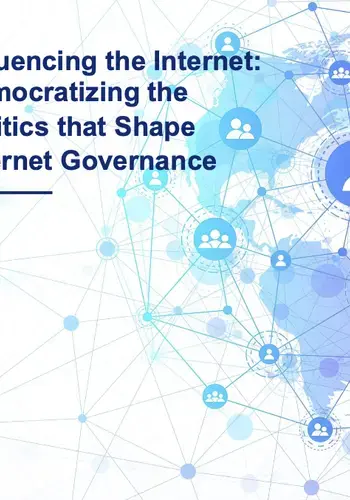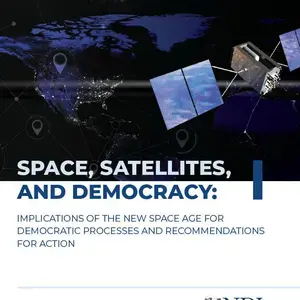Internet governance refers to the processes to make decisions about how the internet is managed locally, nationally, regionally and internationally. This sociotechnical infrastructure (which includes the people, practices, standards and institutions that govern different components of the internet) has evolved in a way that is often indifferent to questions of human rights, justice and democracy.
Research from this new white paper by the National Democratic Institute has found there is a lack of meaningful participation or oversight in these institutions from civil society, journalists and democratically elected political actors. The voices heard in internet policy and regulatory spaces are not geographically diverse, with inadequate representation from outside of North America, Europe and China. Even among high-income countries, women of all backgrounds, as well as people with disabilities and those who do not speak English fluently, face challenges in participating in internet governance fora.
Current models of internet governance are being challenged from different directions, not all of them positive for democracy, as different stakeholders acknowledge these flaws. One challenge is in determining how multistakeholder institutions can reinvent themselves to offer a better alternative and avert a slide toward state-dominated governance models, by making themselves into something that stakeholders who currently feel excluded have greater reason to support. If these traditionally underrepresented stakeholders were to gain more negotiating leverage in internet governance institutions, existing and future norms would be renegotiated and the resulting standards, policies and protocols would have the potential to better serve democratic outcomes.
This white paper explores some of the barriers to participation in national, regional and international fora on the development of internet norms, policies, and standards. It also outlines recommendations for different stakeholder groups, including donors, development agencies, governments, activists, civil society organizations, internet governance institutions, and the private sector, to improve coordination and make meaningful progress towards more inclusive outcomes.



